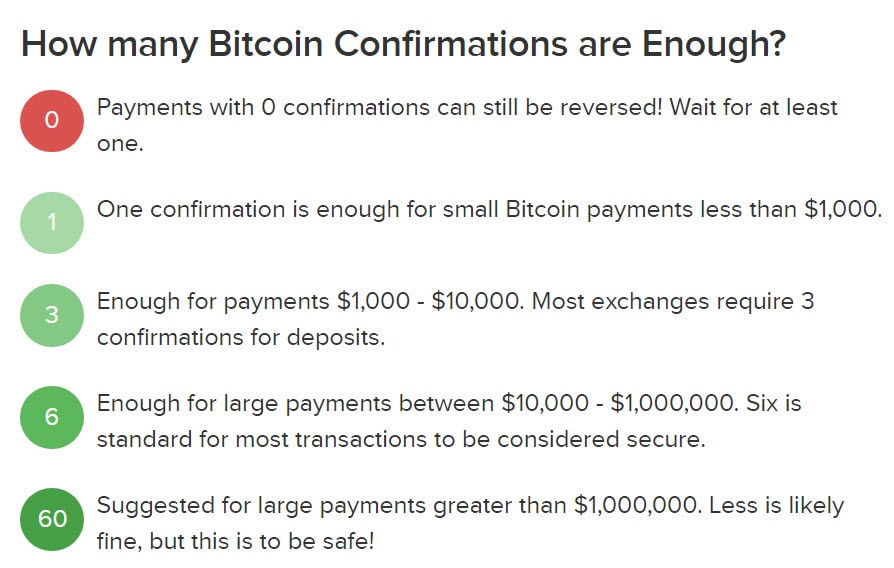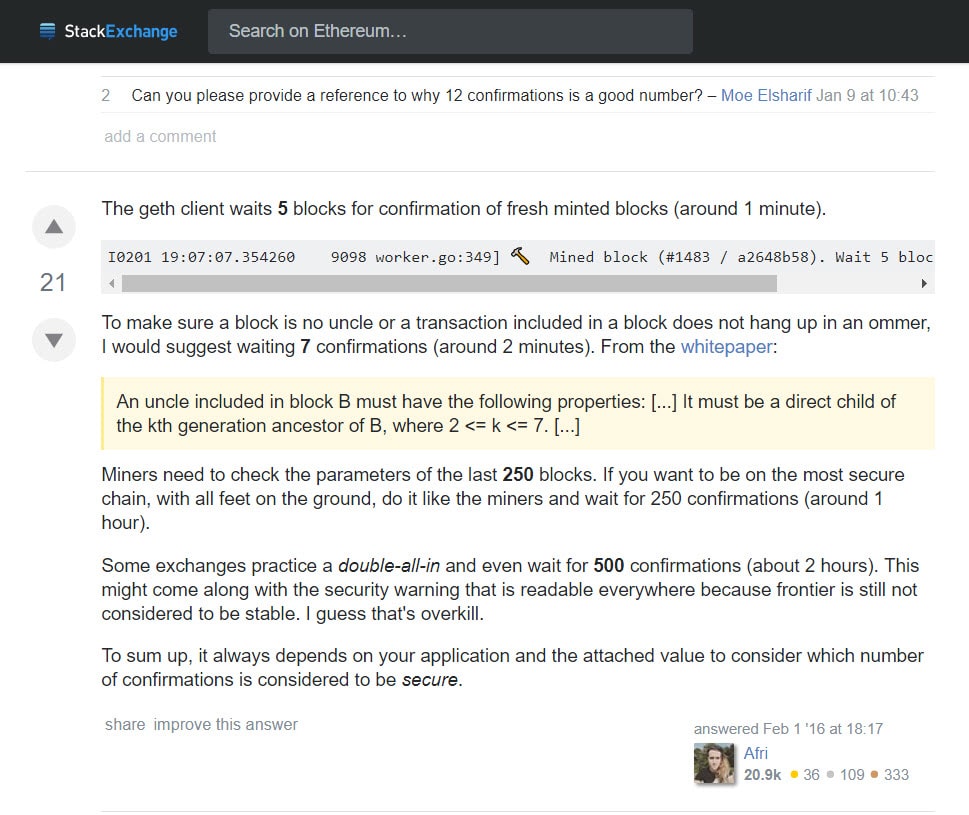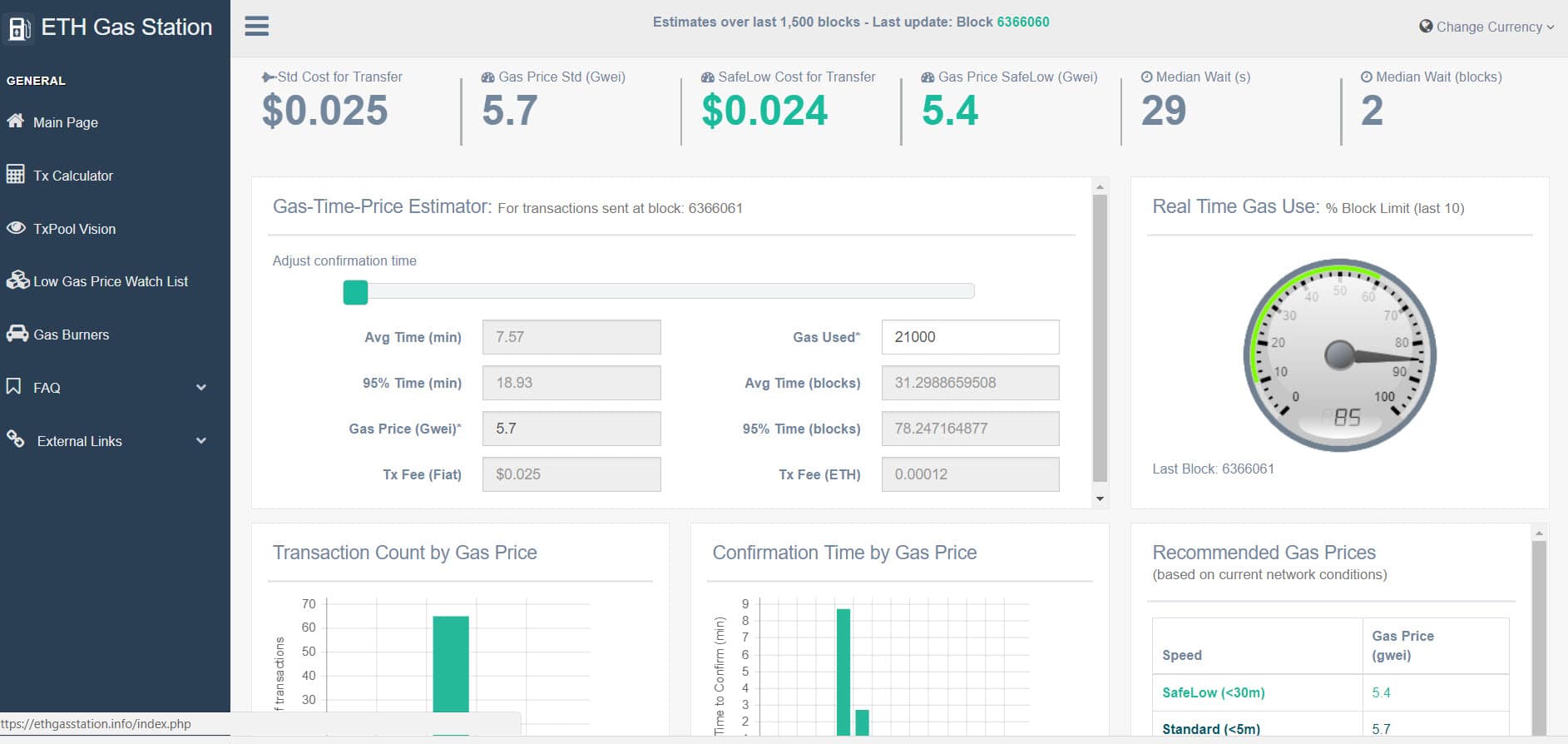All public blockchains make use of blockchain confirmations. These are important since they can help you understand how confident you can be when making a transaction. When any transaction is first broadcast to the blockchain it starts with zero confirmations. This number then increases as the information is added to the first block, confirmed, given a permanent place, and followed by more blocks.
Blockchain confirmations are vital since they are a way of verifying and legitimizing information that will then become immutable. If a transaction is deemed fraudulent, it will be rejected from the blockchain: zero blockchain confirmations means zero transactions.
On average, cryptocurrency exchanges require a minimum of three confirmations until a transaction is accepted. Coinbase, for example, does not consider a Bitcoin transaction as final until it has received at least three confirmations.
However, the larger the transaction, the more blockchain confirmations are required. This is because the more confirmations there are, the harder the transaction is to reverse. For a transaction of $1 million, it’s not uncommon to wait for at least 60 confirmations. The amount of blockchain confirmations required to verify a transaction varies by blockchain. Let’s take a look at Bitcoin and Ethereum here.
Bitcoin Confirmations
You probably already know that Bitcoin’s blockchain creates a new block about every 10 minutes through the mining process. This block then verifies and records new transactions and appends them to the Bitcoin blockchain. This means that a transaction is unconfirmed until the new block is generated. Therefore, if you’re sending or receiving Bitcoin, it’s essential to wait until you see that the transaction has been confirmed.
One confirmation usually takes up to 10 minutes. But, since one confirmation is not enough to be confident about the validity of the transaction, users have to wait for each new block to be created and verify the information. Depending on the amount being sent, this may take anywhere between 30 to 600 minutes. Ten hours is a long time to wait for a transaction confirmation!
Some Bitcoin services are instant and require only the first confirmation, however, the majority ask for more, with some companies requiring at least six Bitcoin blockchain confirmations before accepting the transaction.

What Is the Bitcoin Mempool?
The Bitcoin mempool is the sea of unconfirmed Bitcoin transactions on the Bitcoin network. As explained above, once a transaction is uploaded to the blockchain, it is not confirmed immediately but is released into the mempool of transactions, which are considered in-motion.
All nodes on the Bitcoin network are connected to the mempool, and that includes the miners who collate transactions from the mempool into a block. The miner who first solves the mathematical equation and adds the block to the blockchain is the first to confirm the block. Therefore, the first to receive the miner reward of 12.5 BTC.
This is fairly straightforward, however, some transactions are picked out of the mempool faster than others. Why? Because miners also earn a bonus percentage of transaction fees (called the Bitcoin mining fee).
Miners will pick out the transactions with the higher fees first to earn a higher bonus. It also explains why not paying transaction fees can lead to your transaction getting stuck. In fact, as more people join the Bitcoin network, this bottleneck is one of the greatest challenges to the Bitcoin community.
How to Speed Up Blockchain Confirmation Times
The higher the fee you pay, the more likely your transaction will be confirmed in a timely manner (there is a 60 percent chance that it will take 10 minutes or less). However, if your transaction remains unconfirmed, the recommended wait time is 72 hours before sending it again.
If you want to avoid paying fees, however, you can check to see how many unconfirmed transactions there are at a given moment and calculate how long it will take.
Ethereum Blockchain Confirmations
When it comes to Ethereum blockchain confirmations, the agreed-upon number seems to be undecided. According to the Ethereum white paper, 7 confirmations should be enough to confirm the transaction (about 2 minutes).
However, Ethereum miners must check the parameters of the last 250 blocks. So, if you want to err on the side of caution like the miners, you should wait for 250 confirmations. This sounds like a lot, but in practice is only about an hour.

Coinbase requires 50 ethereum confirmations before considering a transaction complete. It should also be noted that the Ethereum blockchain faces significant scalability issues as well. Ethereum is working to scale quickly to take on more users, and through Proof of Stake, confirmations should be even quicker.
Etherscan and Ether Gas
Ethereum doesn’t have a mempool for pending transactions; it’s simply called the transaction pool. The pool contains all the transactions submitted that haven’t yet been assigned to a block.
There are multiple methods for speeding up your transaction and deciding on the best gas price when sending your Ethereum transaction. You can try ETH Gas Station to see an overview of gas usage, and you can see how many transactions are pending by using Etherscan.

Etherscan is particularly popular since you can order transactions by gas price (simply click on the GasPrice column). You’ll then see more or less the same list that miners see and, if you select a gas price that is within the first couple of pages, you should enjoy short confirmation times.
This article by CHRISTINA COMBEN was originally published at "CoinCentral.com: https://coincentral.com/blockchain-confirmations/
No comments:
Post a Comment